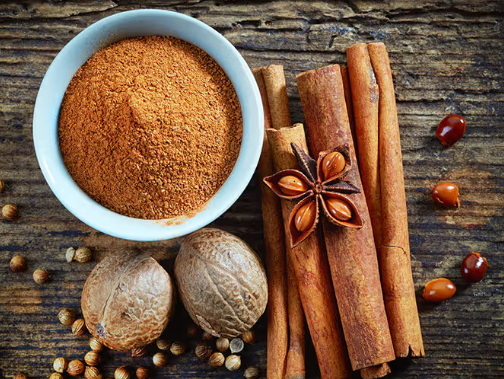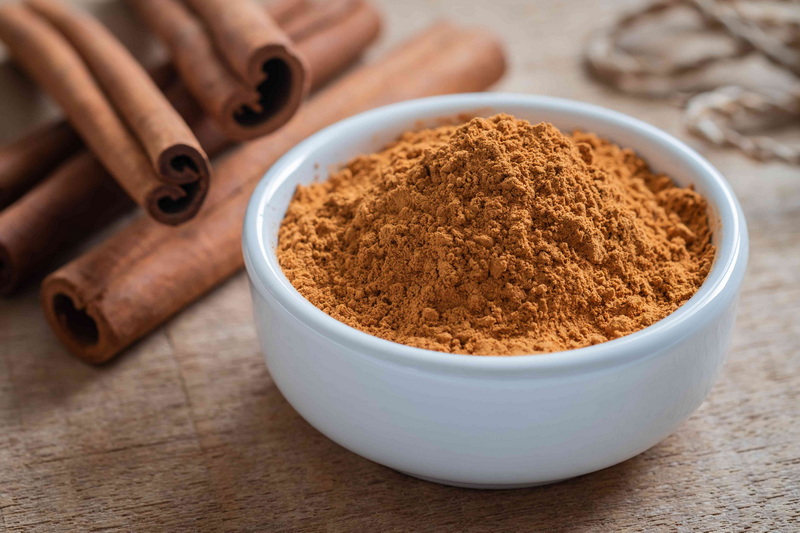Content Menu
● Introduction to Cinnamon Bark Extract
>> Cinnamon Bark Extract Composition
● Health Benefits of Cinnamon Bark Extract
>> 1. Anti-Inflammatory Properties
>> 2. Anti-Diabetic Effects
>> 3. Antimicrobial Properties
>> 4. Neuroprotective Effects
>> 5. Cardiovascular Health Benefits
>> 6. Digestive Health Benefits
>> 7. Immune System Support
>> 8. Skin and Hair Benefits
● How to Use Cinnamon Bark Extract
>> Precautions and Side Effects
● Comparison of Ceylon and Cassia Cinnamon
● Conclusion
● FAQ
>> 1. What are the primary health benefits of cinnamon bark extract?
>> 2. How should I consume cinnamon bark extract?
>> 3. Are there any side effects of using cinnamon bark extract?
>> 4. Can cinnamon bark extract help with weight loss?
>> 5. Is Ceylon cinnamon better than Cassia cinnamon?
● Citations:
Cinnamon bark extract, derived from the bark of the cinnamon tree (Cinnamomum verum or Cinnamomum zeylanicum), is renowned for its numerous health benefits. This natural extract has been used for centuries in traditional medicine and culinary practices due to its rich composition of antioxidants, flavonoids, and essential oils like cinnamaldehyde. In this article, we will delve into the extensive health benefits of cinnamon bark extract, exploring its anti-inflammatory, anti-diabetic, antimicrobial, and neuroprotective properties, among others.

Introduction to Cinnamon Bark Extract
Cinnamon bark extract is obtained from the bark of the cinnamon tree, which is native to Sri Lanka and other parts of Asia. The extract is rich in bioactive compounds, particularly cinnamaldehyde, which is responsible for its distinct aroma and flavor. These compounds contribute to the extract's potent health benefits, making it a valuable addition to both traditional and modern medicine.
Cinnamon Bark Extract Composition
The composition of cinnamon bark extract includes:
- Cinnamaldehyde: The primary component responsible for its anti-inflammatory, antimicrobial, and antioxidant effects.
- Eugenol: Found in cinnamon leaf essential oil, known for its antioxidant properties.
- Polyphenols: Powerful antioxidants that protect against oxidative stress.
Health Benefits of Cinnamon Bark Extract
1. Anti-Inflammatory Properties
Cinnamon bark extract has been shown to possess significant anti-inflammatory properties, primarily due to its cinnamaldehyde content. This compound can reduce inflammation by inhibiting the production of pro-inflammatory cytokines, which are molecules that promote inflammation in the body. Chronic inflammation is linked to various diseases, including arthritis, diabetes, and cardiovascular conditions, making cinnamon bark extract a potential natural remedy for managing these conditions.
2. Anti-Diabetic Effects
Cinnamon bark extract is well-known for its potential in managing blood sugar levels. It enhances insulin sensitivity, allowing glucose to enter cells more efficiently, which can help reduce fasting blood sugar levels in individuals with type 2 diabetes. This effect is attributed to the bioactive compounds in cinnamon that improve insulin signaling pathways.
3. Antimicrobial Properties
The antimicrobial properties of cinnamon bark extract are primarily attributed to cinnamaldehyde, which has been shown to inhibit the growth of various bacteria, fungi, and viruses. This makes cinnamon a natural preservative and a potential treatment for infections, including those caused by E. coli, Staphylococcus aureus, and Candida albicans.
4. Neuroprotective Effects
Cinnamon bark extract has been studied for its neuroprotective properties, which may help prevent or manage neurodegenerative diseases such as Alzheimer's and Parkinson's. The antioxidants in cinnamon can reduce oxidative stress in the brain, potentially slowing down the progression of these diseases.
5. Cardiovascular Health Benefits
Cinnamon bark extract may help lower cholesterol levels, including LDL (bad) cholesterol, and triglycerides, which are risk factors for heart disease. Regular consumption of cinnamon can also help manage blood pressure, further reducing the risk of cardiovascular diseases.
6. Digestive Health Benefits
Cinnamon bark extract can aid in improving digestive health by reducing symptoms of irritable bowel syndrome (IBS) and other gastrointestinal disorders. Its antimicrobial properties can help maintain a healthy gut microbiome.
7. Immune System Support
The antioxidants and polyphenols in cinnamon bark extract can boost the immune system by protecting cells from oxidative damage and enhancing the body's natural defense mechanisms.
8. Skin and Hair Benefits
Cinnamon bark extract is used in skincare for its antioxidant and anti-inflammatory properties, which can help reduce acne and improve skin elasticity. It is also believed to promote hair growth by improving blood circulation to the scalp.

How to Use Cinnamon Bark Extract
Cinnamon bark extract can be consumed in various forms, including capsules, teas, and as a spice in cooking. It is essential to choose high-quality extracts that are free from contaminants and ensure they are sourced from reputable suppliers.
Precautions and Side Effects
While cinnamon bark extract is generally safe, high doses can cause side effects such as liver damage, allergic reactions, and low blood sugar. It is crucial to consult with a healthcare provider before using cinnamon supplements, especially if you have underlying health conditions or are taking medications.
Comparison of Ceylon and Cassia Cinnamon
Ceylon cinnamon (Cinnamomum verum) and Cassia cinnamon (Cinnamomum aromaticum) are the two most commonly used types of cinnamon. Ceylon cinnamon is often considered more potent and safer due to its lower coumarin content compared to Cassia cinnamon. However, both types offer health benefits, and the choice may depend on personal preference and availability.
Conclusion
Cinnamon bark extract offers a wide range of health benefits, from reducing inflammation and managing blood sugar levels to protecting against microbial infections and supporting cardiovascular health. Its rich antioxidant content makes it a valuable natural remedy for promoting overall well-being. However, it is important to use cinnamon bark extract in moderation and consult with healthcare professionals before adding it to your regimen.

FAQ
1. What are the primary health benefits of cinnamon bark extract?
Cinnamon bark extract is known for its anti-inflammatory, anti-diabetic, antimicrobial, and neuroprotective properties. It can help manage blood sugar levels, reduce inflammation, and protect against infections.
2. How should I consume cinnamon bark extract?
Cinnamon bark extract can be consumed as capsules, teas, or added as a spice to food. Always choose high-quality products from reputable sources.
3. Are there any side effects of using cinnamon bark extract?
High doses of cinnamon can cause liver damage, allergic reactions, and low blood sugar. Consult with a healthcare provider before using cinnamon supplements.
4. Can cinnamon bark extract help with weight loss?
While cinnamon may help improve insulin sensitivity, which can indirectly support weight management, there is no direct evidence that it aids in significant weight loss.
5. Is Ceylon cinnamon better than Cassia cinnamon?
Ceylon cinnamon is often considered more potent and safer due to its lower coumarin content compared to Cassia cinnamon. However, both types offer health benefits, and the choice may depend on personal preference and availability.
Citations:
[1] https://www.bbcgoodfood.com/health/nutrition/health-benefits-cinnamon
[2] https://pubs.rsc.org/en/content/articlehtml/2021/fo/d1fo01935j
[3] https://draxe.com/nutrition/health-benefits-cinnamon/
[4] https://www.webmd.com/diet/supplement-guide-cinnamon
[5] https://www.frontiersin.org/journals/pharmacology/articles/10.3389/fphar.2021.790901/full
[6] https://health.clevelandclinic.org/benefits-of-cinnamon
[7] https://www.webmd.com/diet/health-benefits-ceylon-cinnamon
[8] https://pmc.ncbi.nlm.nih.gov/articles/PMC4003790/
[9] https://www.medicalnewstoday.com/articles/266069






























